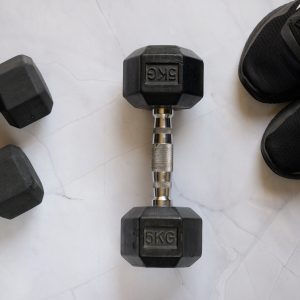A Crash Course on Bowel Function with Healing Techniques and Wellness Strategies to Help You Ensure the Proper Function of Your Bowel
Could the position of your bowel influence your digestion?
This blog post will give you some background on the structure of the bowel, discuss how it functions, explore some issues that can arise when it’s not functioning properly, and provide some tips on how you can support healthy bowel function and position.
To start things off, let’s go over some fun facts about the bowel, which you might not know.
How the Bowel Functions and Wellness Strategies to Ensure it’s Working Properly
The large intestine, which is part of the bowel, is about 5 feet (1.5 metres) long!
It is made up of a few different segments:
Did you know 80% of what enters into the colon is reabsorbed back into the body?
No wonder it’s so important to pay attention to the unique function and structure of this wonderful sanitizing organ, which provides so many benefits for the body.
If you neglected your home’s sewer system you would have a blockage creating all kinds of problems, and the same goes for your body.
Just as you’d call a plumber to unblock your sewer system, when your bowel is not functioning properly, you have to find healing techniques and wellness strategies to deal with the problem.
What is the function of the colon?
• Food is received into the ascending colon and is semi-liquid. It is in this area where the water is withdrawn and absorbed.
• Good bacteria play a role in the completion of the digestion process. Billions of friendly bacteria synthesize valuable nutrients by digesting the fecal mass. Vitamins like K and B, as well as other nutrients are produced from this amazing process!
• Alkaline fluids aid in the completion of digestion.
• Digested food is pushed along through the bowel by something called peristalsis, which is a unique movement the bowel makes that is initiated from the muscles in the bowel wall.
• As digested food moves, positive bacteria and more water are withdrawn and waste from the blood system is received and carried with the fecal material to the rectum.
• The movement and passage of this material should be regularly evacuated in a consistent and effortless way.
Colon problems and their negative effects on the body
Diverticulitis, colitis, spastic bowel, ballooning, strictures, and prolapsus are all concerns that can inhibit the natural movement and function of the bowel.
What I want to pay specific attention to here are the concerns associated with prolapsus.
When the transverse colon sinks down due to an overload of accumulated waste, the “droopy” part of the colon is now sitting on the lower body organs. This is a huge concern for women, in particular.
The abnormal pressure needed to force the feces towards the descending colon becomes increasingly problematic if the transverse colon has dropped down.
The positional stress created with the prolapse may be corrected with a unique type of massage, which is part of the body management modality I practice. This massage for the bowel works great as a “reset”.
In any case, things like fatigue, sickness, lethargy and poor digestion can all be attributed to the bowel’s poor function due to positional stress.
I’ve been performing this unique massage with clients, friends and family for more than 20 years and the results are truly amazing!
Healing techniques to support healthy bowel function and position
• Eat fibre-rich foods
• Drink water
• Exercise!
• Consider calling me for a unique, non-invasive abdominal massage (Body Management Session)
• Do a colon cleanse, which entails a specific supplement regime whereby I will do a photo comparative blood analysis session to determine the best approach to cleansing for your specific needs
Helping you live the life you love more naturally,
Christine Plumb










